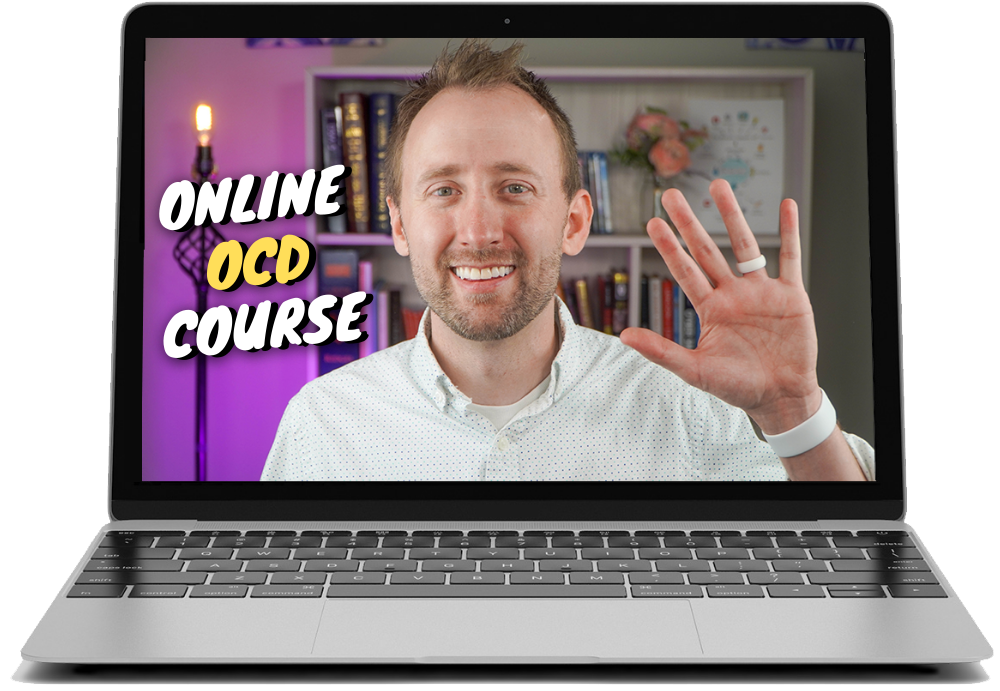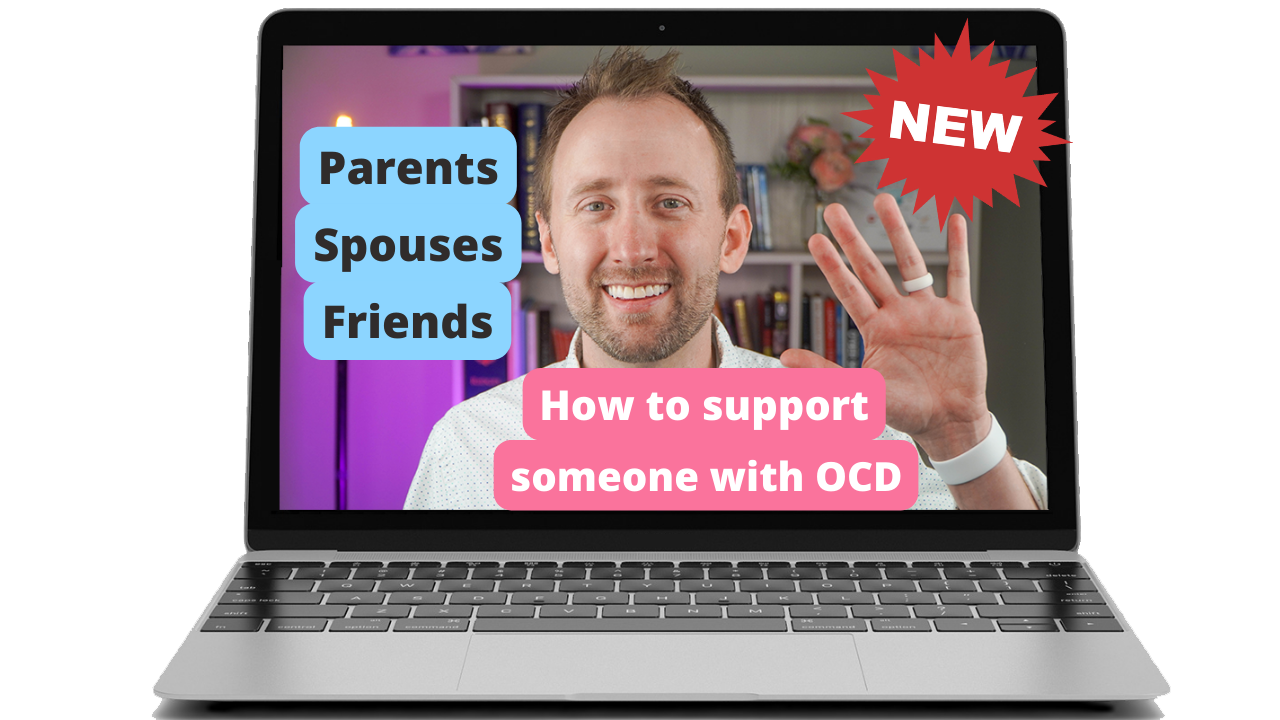Intrusive Thoughts wont' stopDon't click on the ad!
Have you ever just been scrolling the internet or social media and you see those ads pop up. they can be flashy, they can have some great one liner hooks I just capture your attention. But whatever you do, do not click on the ad. these ads are like your random thoughts. Those random intrusive thoughts that you don't really want but they just keep coming back anyway. What's worse is that they start joining your everyday life and activities. These ads can be intrusive. If you allow those ads to be there. Actually will slow down and sometimes be non-existent. You just told your computer or your thoughts that these ads have no value in your life and you're simply not interested. When one topic disappears, another may take its place. This new flashy ad seems important. It's new, you're not used to it and it seems highly important for you to pay attention to it. Do not click on the ad! When you're scrolling through social media and moving from page to page, you notice this ad following you. The ads say, you don't really love your partner to you? What if you pushed somebody harmful? What if you're going to get sick now? have you ever thought about this past experience how awful it was? today's the day you need to figure out you were identity? how do you even know there is a God? Your monster and I'll show you why. How tempting would it be to just click on this and once and take a peek. They don't know me! seriously, I'm not that kind of person. I'm starting my faith. I would never harm anyone. I love my partner. Let me just click on this ad so I can see what the fuss is all about. It is so intriguing that this thought goes completely against who I am and I want to figure out why. this is completely natural. I would want to know why my thoughts seem to be against me. I mean I'm just scrolling through social media, I'm just doing my homework, just watching a TV show. These ads are relentless and follow the person anywhere. Do not click on the ad! You have clicked on the ad. here is what is going to happen. This ad that makes you question your partner is now going to show up everywhere. You just taught your brain that this thought or ad has value. It gave it permission to say, "here I am" "here I am" "remember me" "I'm still here" -- thanks for giving me some attention. I'm here to tell you that it has meaning. In the digital world, when someone clicks on an ad, it teaches it that you care and thus they spend more to put that ad more in front of your face. They often call it retargeting. This intrusive thought is retargeting you. The cool thing about these retargets is that if you stop clicking on the ad, they eventually go away. Depending on the budget, it may last a few days. It may last a few weeks. But the thing to always count on is that they will slow down. Who wants to spend "money" or "energy" on someone who simply isn't showing any interest? So if you're not getting what I'm saying. Do not click on the ad and here are some tips to give you better chance. Notice the ads, allow them to be there. Don't use an adblocker. We don't push the thoughts away. We don't try to control them. We let them be. When you're scrolling, you may notice the thought or ad, but your job is to continue scrolling. If you must give the thought a response they can look like this. "hey thought" "welcome" "great to see you" "sure" "maybe" "maybe not" "thanks for the thought today." "You're welcome to stay as long as you want." When we give these responses and you may have to do them a lot. It shows the brain that you've recognized the thought, but aren't giving them much value. It's the "I don't care" attitude. This attitude is the antidote to intrusive thoughts. Allow them to be there, respond differently than you normally would and move forward. Continue living life and do exactly what you want to do. These thoughts may infiltrate various aspects of your day and life but don't stop living. You not stop moving forward. Just like these ads, it got nothing to retarget when you simply give them no value. And as these flashy ads keep switching we treat each one the same way. Not one thought is more important then another. Thoughts are thoughts. Let them be thoughts. We can't ignore the anxiety and distress that come from these thoughts. Just know that these feels tend to be false. it's that extra push for you to click on those ads. Instead, we treat these feelings the same. To me, it's a false signal. Anxiety without immediate danger is false anxiety. It's based on a guess and on a meaning that you've put upon this thought. We can treat this anxiety the same. "hey anxiety" "welcome" "you're welcome to stay" "I love love love these feelings" When our response to anxiety changes. You're putting your arm around it. It learns that as it's freaking out, you're cool as a cucumber. Teaching it to no longer freak out about an intrusive thought. It often doesn't know until you teach it. These ads have nothing on you. You're too powerful. Tell yourself this! Don't click on the ad the next time your intrusive thought demands attention. Act as if you don't care. Welcome it. Acknowledge and move forward. Speaking of intrusive thoughts. You need to enhance your skills even more. I've come up with even more responses to these pesky thoughts. Go watch that video here. It's worth your time!
0 Comments
What is checking OCD and how to stopThis is Nathan Peterson, licensed clinician and OCD specialist. Is the door locked? Is the stove off? Did I shut off the water? Did I turn off the lights? Did I send an inappropriate email? Did I forget something important? Did I unplug the toaster? How about I check one more time....just in case? Checking OCD or rather these compulsions are tough because was is the harm checking one more time? I mean, it doesn't take very long to do and you ensure that you've kept yourself safe or others. At least that's what your brain wants you to think. We will be going through what checking OCD looks like what we're gonna do about it. Ultimately individuals who have this type of OCD will often think that somehow they will cause harm or something bad to happen to either themselves or others. Intentionally or not. What wins every single time is that it's not worth the risk to not go check. Individuals often think if they don't go back and check, they will have this thought on their brain all day. This checking can fit in many areas of someone's life. They can be driving a car go back and check if they hit somebody because they went over a bump. Back multiple times, just to make sure. They may be checking the news to see if there any reports of somebody getting hit. Someone may check their browser history to make sure they didn't look at anything inappropriately. They could check body symptoms for any health concerns. Check for moles, lumps, heart, and really anything that indicates a problem. They could check for any mistakes they've made in their life. Replaying moments in their mind to check if that's really how it went down. Here is why we know this repetitive behavior is OCD. Because often times an individual gets stuck checking time and time and time again. Somebody can touch the burner verify to them that it is off. And just as they turn their back, the brain says, but are you sure? It's this need for certainty and relief of anxiety and this urge. Because who wants to risk a fire? Risk their health? Risk hurting someone? Individuals often think that they couldn't live with themselves if it was their fault. You've got to know that these individuals care. And that is why this OCD is attached to this so much. They care so greatly and is one of their big values in life. It is worth it for them to spend minutes, hours, days checking and rechecking just to make sure you are safe. So this is what works for this type of OCD. We are going to be using exposure and response prevention. This means that you are exposing yourself to the uncertainty of whatever it is you want to check. When you were sitting in bed and your brain tells you to stand back up and go check the door one more time, we are choosing not to. We're not just gonna twiddle our thumbs and panic. Instead we are going to respond completely different. Some responses are, the door may not be unlocked. Sure I guess the door will stay unlocked tonight. Yep someone might breaking to my house. Cool would it be wonderful if someone broke in tonight. I am willing to risk that the door is unlocked tonight. The only way I'll know is when I wake up tomorrow. I am using statements as if I do not care. I am tolerating some uncertainty. Also I'm willing to risk whatever it is. And people always say, but what if this is the time I didn't check and something happened. That is the risk. Risk that you actually did not lock the door and find that majority of the time it doesn't matter anyway. The difference between normal checking and obsessional checking is the urge and anxiety to do so. The urge is so absolutely strong mixed with this anxiety, we might risk it this time. A lot of people think they are different, OK I could risk the door, but I can't risk but the stove stays on. I can't risk that I didn't actually hit someone with my car. I can't risk that hurt somebody's feelings. I can't risk that I might've done something inappropriately. Don't get cut up into thinking that your obsession is different than someone else's and more valuable. OCD is OCD. What ends up happening is that somebody's willing to risk these things they wanna check and respond completely different to them that their brain will learn over time that they are actually OK. They don't have to convince themselves, they've learned through experience. And you know what, if there is a problem we will solve it. We do make mistakes and we need to learn to handle those. This past year I left the gas burner on all night after cooking dinner. I woke up in the morning and saw the flame a rumbling and I guess what I did. I turned it off. There was a problem and I fixed it. We can spend hours preventing a problem that may never ever be a problem or risk and only fix problems when they're actual problems. Did you know that we didn't react based on how you feel in our mood? Do you understand OCD mood swings to help you more with this checking, make sure you check out....get it..."check out" my video on OCD mood swings what you're going to about them. Stop checking body symptoms |
AuthorNathan Peterson specializes in working with OCD and Anxiety related disorders and has done so for the past 7+ years. Archives
January 2023
Categories
All
|



 RSS Feed
RSS Feed